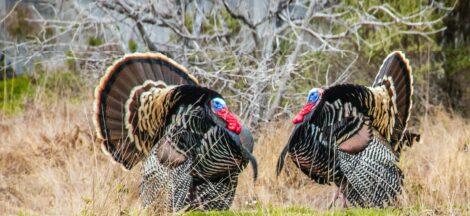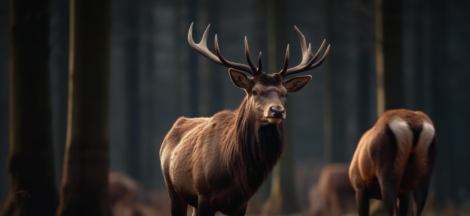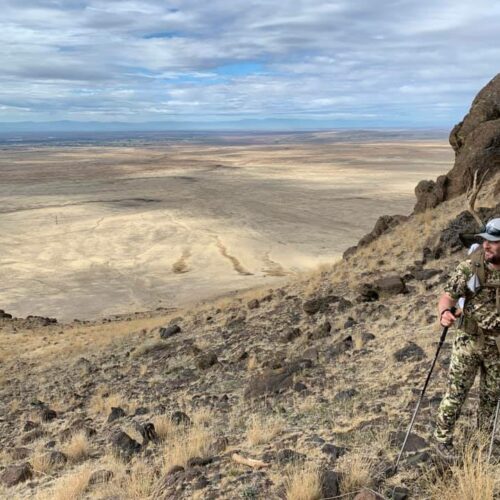Responsible and Sustainable Deer Hunting Practices
As a hunter, it’s essential to understand and practice responsible and sustainable deer hunting methods. By doing so, you can ensure the long-term health of the deer population, protect the environment, and foster a positive perception of hunting within the broader community. In this article, we’ll explore several crucial components of responsible and sustainable deer hunting, including understanding deer population dynamics, knowing and following regulations, ethical hunting practices, and minimizing waste.
Understanding Deer Population Dynamics
Deer populations can be significantly influenced by various factors, including weather, habitat conditions, predation, and disease. As a responsible hunter, it’s important to understand these dynamics to avoid overhunting and to ensure the long-term health of the deer population. Familiarize yourself with local deer herd numbers, trends, and management goals. Many states conduct regular surveys and make this information available to the public. By staying informed, you can make better decisions about when, where, and how many deer to harvest.
Knowing and Following Hunting Regulations
Hunting regulations are established to protect the health and sustainability of deer populations, as well as the safety and enjoyment of all outdoor enthusiasts. Make sure to familiarize yourself with your local hunting regulations, which may include restrictions on hunting methods, equipment, seasons, and bag limits. Always follow these rules and guidelines, as doing so will help protect the long-term health of the deer population and maintain a positive reputation for hunters within the community.
Ethical Hunting Practices
Responsible and sustainable deer hunting extends beyond just following regulations. It also involves adhering to a set of ethical principles that govern how we treat the animals we pursue, the environment we share, and our fellow hunters. Some key aspects of ethical hunting practices include:
- Respecting wildlife: Treat deer with respect and dignity by aiming for quick, clean, and humane kills. Always wait for a clear and ethical shot, and avoid wounding animals or making them suffer unnecessarily.
- Minimizing impact on the environment: Practice ‘leave no trace’ principles by properly disposing of waste, avoiding damage to vegetation, and preventing soil erosion.
- Respecting landowners and other outdoor users: Always ask for permission before hunting on private land, and be courteous to other hunters, hikers, and outdoor enthusiasts you may encounter.
- Continuing education: Keep up-to-date on hunting techniques, equipment, and wildlife management practices to ensure you’re always hunting in the most responsible and sustainable manner possible.
Minimizing Waste
One of the cornerstones of responsible and sustainable deer hunting is minimizing waste. This involves utilizing as much of the animal as possible and respecting the life that has been taken. Here are some ways to minimize waste:
- Field dress your deer promptly: Quickly and efficiently field dressing your deer will help ensure the highest quality meat and prevent spoilage.
- Harvest all usable meat: Be thorough in your butchering process, making sure to take all edible portions of the deer, including lesser-known cuts that may be overlooked.
- Preserve the meat properly: Quickly cool the meat, package it well, and store it at the appropriate temperature to prevent spoilage and ensure the meat remains safe for consumption.
- Share your harvest: If you have more meat than you can personally use, consider sharing it with friends, family, or donating it to local food banks or organizations that help distribute game meat to those in need.
- Utilize non-edible parts: Make use of hides, antlers, bones, and other non-edible parts for crafts, tools, or other purposes to minimize waste and honor the life of the animal.
Habitat Conservation and Restoration
Responsible and sustainable deer hunting also involves being an active participant in habitat conservation and restoration efforts. This includes:
- Protecting and preserving habitat: Advocate for the protection and preservation of important deer habitat, including forests, wetlands, and other natural areas.
- Supporting habitat restoration projects: Volunteer your time or provide financial support to organizations and agencies that work on habitat restoration and enhancement projects.
- Practicing responsible land management: If you own or manage land, implement best practices for maintaining and improving wildlife habitat, such as planting food plots, creating cover, and managing timber.
Mentorship and Community Involvement
As a responsible and sustainable deer hunter, it’s essential to share your knowledge and passion with others to ensure the future of our hunting heritage. Mentoring new hunters, engaging in community outreach, and supporting conservation organizations are all vital ways to help secure the future of deer hunting for generations to come.
In conclusion, responsible and sustainable deer hunting practices not only benefit the deer population and the environment but also help foster a positive image of hunting within the community. By understanding deer population dynamics, adhering to regulations and ethical principles, minimizing waste, participating in habitat conservation, and sharing your knowledge and passion with others, you can contribute to the long-term success and enjoyment of deer hunting for yourself and future generations.
Happy hunting!





 The Influence of Weather Patterns on Deer Hunting Outcomes
The Influence of Weather Patterns on Deer Hunting Outcomes